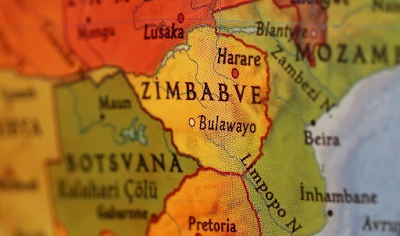Zimbabwe Firms Fret over Mozambique Crisis
7:27 CAT | 26 Jul 20210
Zimbabwe’s industries have warned that a deadly insurgency roiling neighbouring Mozambique has emerged as the greatest threat to power and fuel imports that could further hurt Harare’s fragile economy.
Zimbabwe’s industries get most of their fuel supplies through the Beira-Feruka Harare pipeline, a 504km asset that was constructed in 1964 with capacity to handle 130 million litres of fuel per month.
In addition to fuel shipments via the vast southern African country, Zimbabwe imports a significant part of its power requirements from Mozambique’s Hidroelectrica de Cahora Bassa (HCB) to augment erratic supplies from its ailing power plants.
The insurgency that has been linked to Islamic State (IS) jihadists has ravaged the gas-rich Cabo Delgado province since 2017, claiming over 3 000 lives, including one Zimbabwean, and displacing about 800 000 people.
Last week the European Union established a military mission to help train Mozambican armed forces to give the army fresh capacity to stand up to IS.
But in Harare, the country’s largest business lobby, the Confederation of Zimbabwe Industries (CZI) said developments in Mozambique could spiral into a regional crisis with implications on domestic industries’ capacity to access markets in Maputo.
In its second-quarter Business and Economic Intelligence Report released last week, the CZI said: “The terrorist activities in the Cabo Delgado province in Mozambique continue to threaten the country’s peace and the region’s economic growth prospects for 2021.
“Mozambique is key to Zimbabwe on the importation of petroleum via the Beira to Feruka and Msasa Pipelines, and electricity. The corridor is also important for Zimbabwe’s exports to Mozambique such as sugar, tea and coffee, paper and packaging material and timber.”
It is the first time that industries have officially spoken about the grueling crisis that has seen regional leaders holding crucial meetings to find a lasting solution.
For now, a solution has been elusive, but the implications of the conflict would be felt beyond Zimbabwe, given that markets in countries like the Democratic Republic of Congo, Zambia and Malawi rely on Mozambican ports for some of their imports and exports.
In an interview with businessdigest recently, Energy ministry secretary Gloria Magombo spoke about the importance of Mozambique to Zimbabwe.
Magombo said while Harare had poured billions of United States dollars to rebuild its major power plants until around 2022, regional supplies, including from Mozambique, remained a vital cog to Harare’s efforts to rebuild its economy.
“Though any country can import power from any utility or independent power producer that participates on the Southern African Power Pool market, Zimbabwe has traditionally been importing power from HCB (in Mozambique) and Eskom (in South Africa) through bilateral contracts,” Magombo said. “Yes the country is currently on the Eskom bills, whilst Zesa is working on facilities to ensure the EDM (of the Democratic Republic of Congo) and HCB bills are met.”
The CZI said it was also concerned about developments in South Africa, Zimbabwe’s largest trading partner, which has been held back by crippling hard lockdowns enforced by the government to contain the spread of Covid-19.
“After a strict lockdown which led the South African economy to contract by an estimated 7,7% in 2020, GDP is projected to expand by 3,3% in 2021. However, there is still uncertainty on whether a strong and sustained recovery will materialise in the medium-term given the challenges of power shortages, elevated public debt, and other policy constraints,” CZI said.
“The operating environment (in Zimbabwe) also remained constraining for industry as the cost of production remained high in the economy and the heavy taxation regime on exporters weighed on any efforts to boost export capacity. Further lockdowns or business slowdown in the Asian markets will hurt Zimbabwe’s ex-port earnings or impact commodity prices for key exports such as nickel, gold, platinum and tobacco. Travel restrictions globally will continue to hurt local tourism as Zimbabwe relies on international tourists for over US$1 billion in foreign currency earnings. Manufacturers of consumables used in the tourism sector will continue to realise depressed business.
“Additionally, global business downturn affects the level of foreign investment inflows into the local economy. Inflation has been decelerating in the first quarter of 2021, thanks to the tight monetary policy being implemented by the Reserve Bank of Zimbabwe, fiscal consolidation efforts and containment of expenditure by the Treasury.”
Source: The Standard

No comments:
Post a Comment